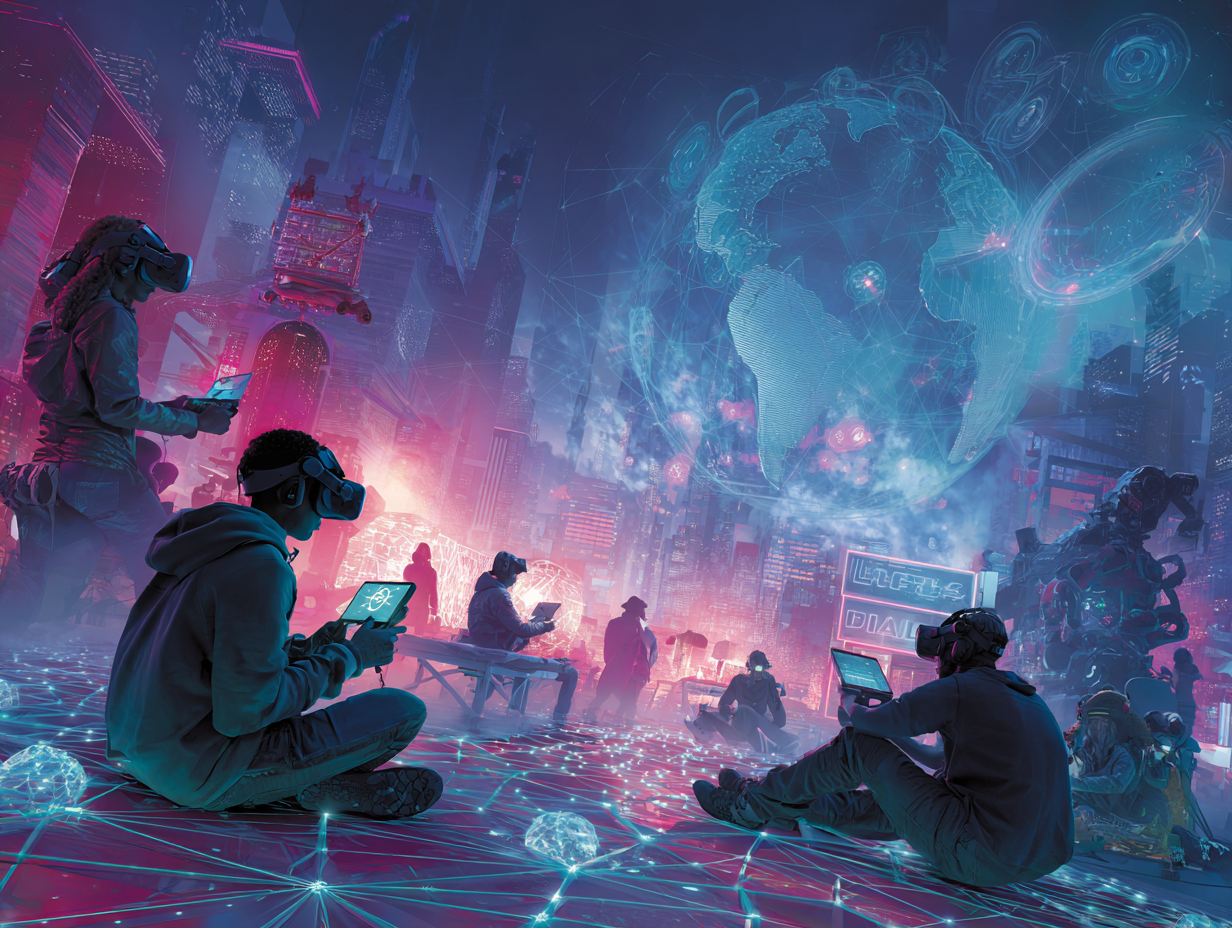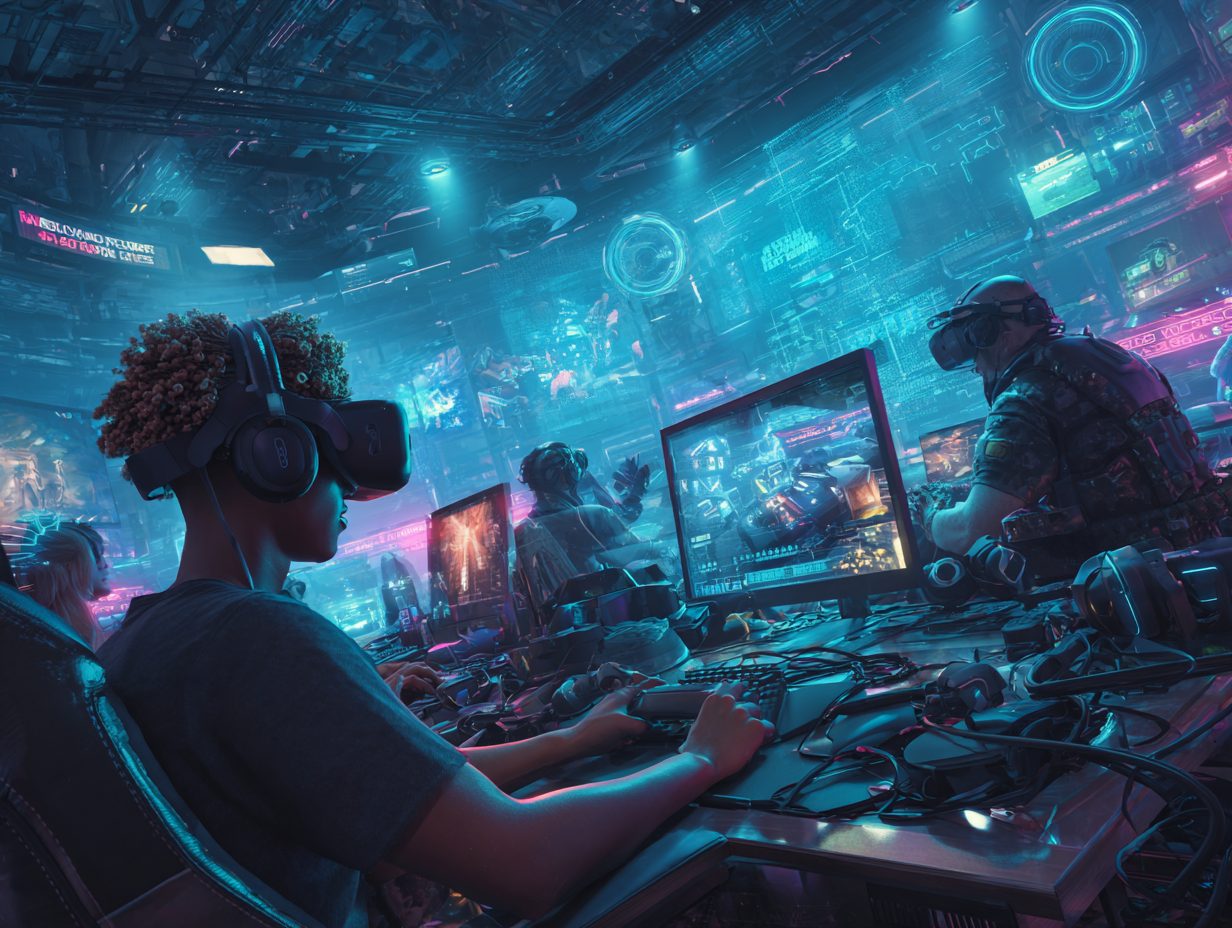Introduction to Online Gaming: A Global Phenomenon
Online gaming has evolved from a niche subculture into a multibillion-dollar global industry. With the rise of high-speed internet, powerful gaming devices, and social connectivity, online gaming now transcends entertainment, shaping education, culture, social interaction, and even economic ecosystems.
A Historical Overview of Online Gaming
The roots of gaming date back to the early 1970s with text-based multiplayer games on mainframe computers like PLATO. However, it was the 1990s dial-up internet era that gave birth to widespread online gameplay, leading to the explosion of genres such as:
- MUDs (Multi-User Dungeons)
- MMORPGs (Massively Multiplayer Online Role-Playing Games)
- Online FPS (First-Person Shooters)
Today, online gaming has diversified into competitive eSports, casual mobile play, metaverse experiences, and blockchain-based economies.
Types of Online Games and Player Demographics
Multiplayer and Cooperative Games
These games allow players to team up or compete in real-time. Examples include:
- Fortnite
- Call of Duty: Warzone
- League of Legends
Casual and Social Games
Popular on platforms like Facebook and mobile apps, these games appeal to broader, more casual audiences:
- Candy Crush Saga
- Among Us
- Words With Friends
Massively Multiplayer Online Games (MMOs)
MMOs host thousands of players simultaneously in persistent virtual worlds:
- World of Warcraft
- Final Fantasy XIV
- EVE Online
Demographics
According to Statista:
- 45% of U.S. gamers are women
- 38% of gamers are aged 18-34
- 70% of all gamers play on mobile devices
Technological Infrastructure of Online Gaming
The seamless experience of online gaming depends on:
- Cloud Gaming (e.g., NVIDIA GeForce Now, Xbox Cloud)
- Low Latency Networks (5G, Fiber Optic Broadband)
- Game Engines (Unity, Unreal Engine)
- Anti-Cheat Software & Security Protocols
The Rise of Sports and Competitive Gaming
eSports has transformed online gaming into a professional career. Tournaments like The International and League of Legends World Championship offer prize pools exceeding $10 million. Key eSports elements include:
- Professional teams and sponsors
- Broadcasting on Twitch and YouTube Gaming
- Franchise-based leagues (e.g., Overwatch League)
Psychological and Social Aspects of Online Gaming
Benefits
- Enhances cognitive function and problem-solving
- Builds teamwork and communication skills
- Provides stress relief and relaxation
Risks
- Potential for gaming addiction
- Cyberbullying and toxic behavior
- Exposure to inappropriate content
Parental Controls and Online Safety in Gaming
Parents and guardians now have access to robust tools for managing children’s gaming:
- Time limits (PlayStation, Xbox Family Settings)
- Age-restriction filters
- Real-time chat monitoring and blocking
- In-game purchase controls
The Economics of Online Gaming
Revenue Streams
- In-App Purchases: Skins, weapons, power-ups
- Subscription Models: Xbox Game Pass, PlayStation Plus
- Ad Revenue: Especially in mobile gaming
- NFTs & Play-to-Earn Models: Web3 integration
Top-Grossing Online Games
- Honor of Kings ($3B/year)
- PUBG Mobile
- Roblox
Mobile Gaming: Dominating the Market
Mobile gaming now accounts for over 50% of global gaming revenue. Key reasons:

- Accessibility and affordability
- Freemium model appeal
- Cross-platform connectivity
Popular mobile titles include Clash of Clans, Genshin Impact, and Brawl Stars.
Streaming and Content Creation in Online Gaming
Twitch, YouTube Gaming, and Facebook Gaming have revolutionized how people engage with games:
- Streamers build loyal communities
- Influencers drive game sales
- Real-time donations and sponsorships offer monetization
Virtual Reality (VR) and Augmented Reality (AR) Gaming
VR and AR technologies are adding new dimensions to online gameplay:
- VR Titles: Beat Saber, Half-Life: Alyx
- AR Games: Pokémon GO, Minecraft Earth
- Hardware: Oculus Quest, PlayStation VR2, Apple Vision Pro
Educational Applications of Online Gaming
Serious games and gamified learning platforms are transforming classrooms:
- Kahoot! and Prodigy for interactive quizzes
- Minecraft Education Edition for STEM
- Simulations for healthcare, military, and pilot training
Ethics and Regulation in the Online Gaming Industry
Governments and regulators are increasingly focused on:
- Data protection (GDPR, CCPA)
- Loot box transparency
- Gambling classification of microtransactions
- Digital well-being laws (e.g., China’s playtime limits)
Global Trends in Online Gaming
Key Trends
- Cross-platform play (console + PC + mobile)
- AI-driven NPC behavior and moderation
- Blockchain-based game economies
- Metaverse integrations (e.g., Fortnite concerts)
Top Gaming Markets
- China
- United States
- South Korea
- Japan
- Germany
Future Outlook of Online Gaming
As technology advances, the gaming industry is poised for even greater transformations:
- Integration with AI and machine learning
- Fully immersive metaverse worlds
- Personalized gameplay through data analytics
- Decentralized player-owned assets via blockchain
Conclusion: Online Gaming as a Cultural Mainstay
Online gaming is no longer just a pastime—it’s a global cultural movement, a career path, a learning environment, and an economic force. As we move forward, its influence on our digital and real lives will only deepen.
